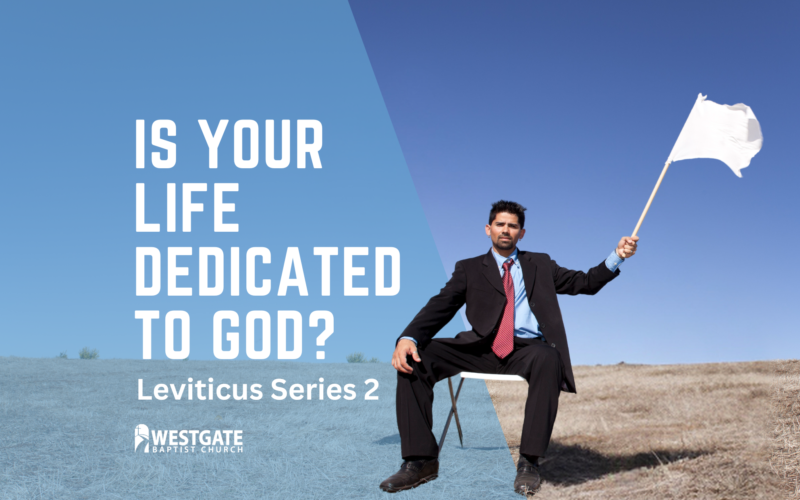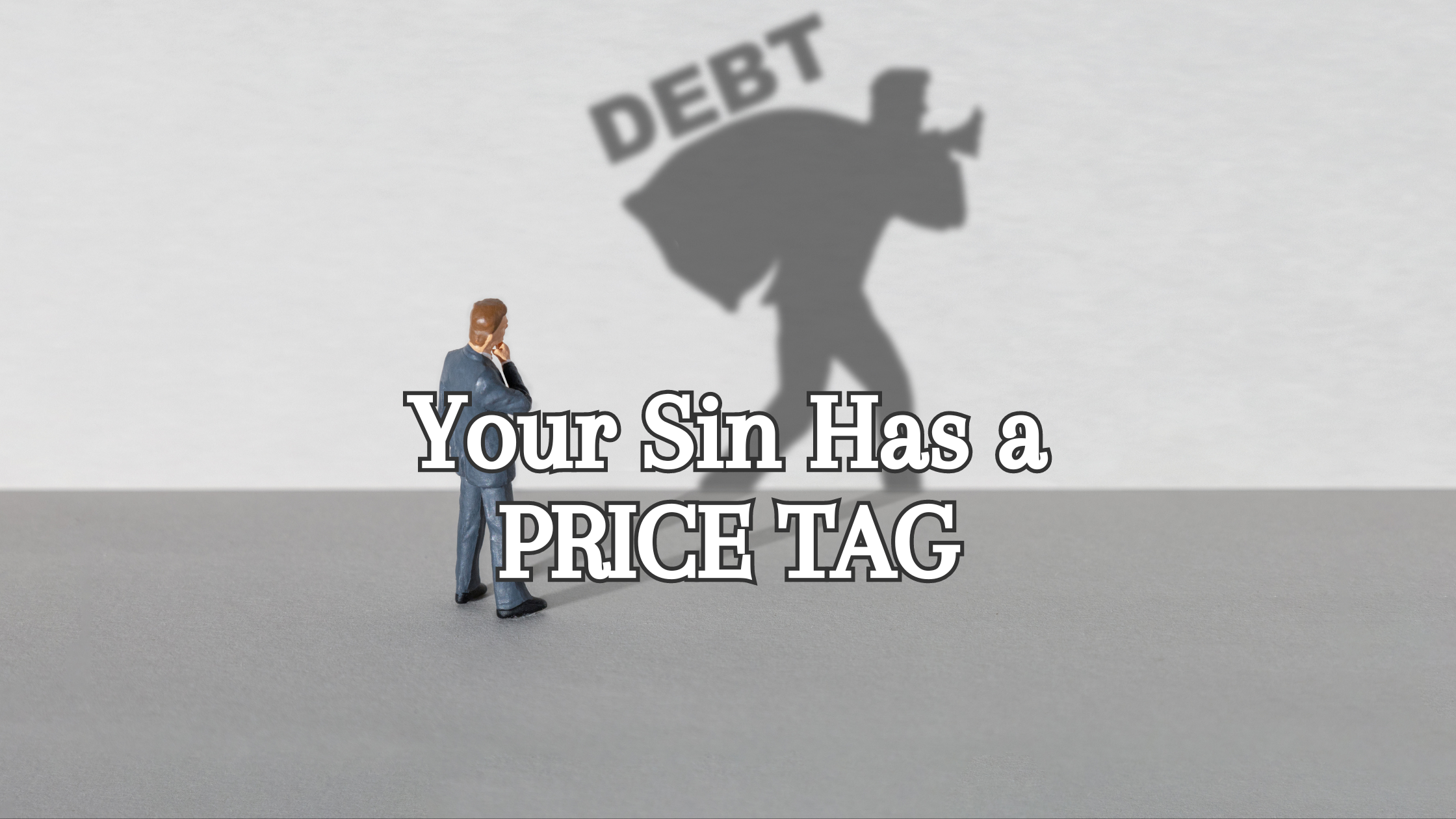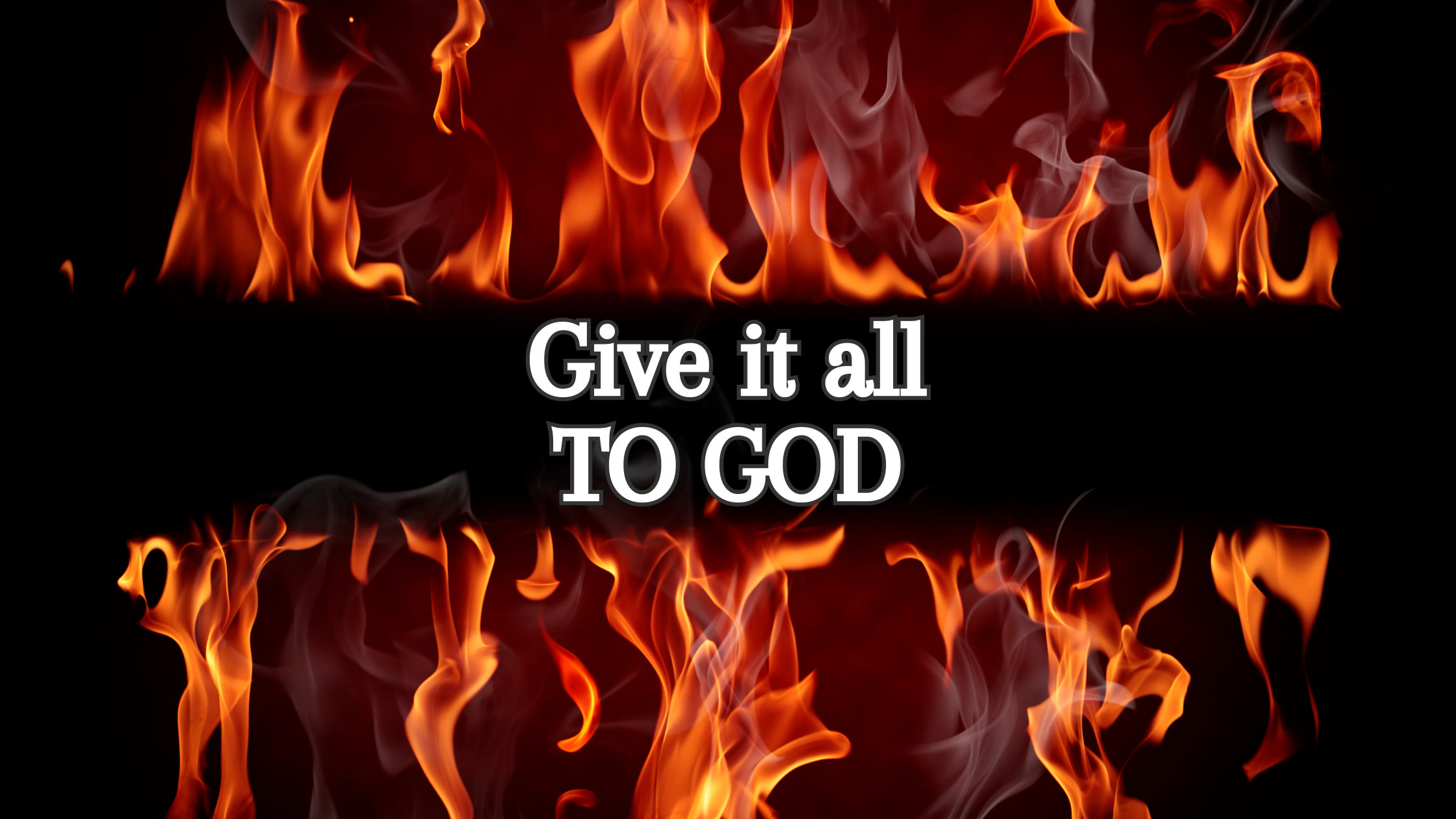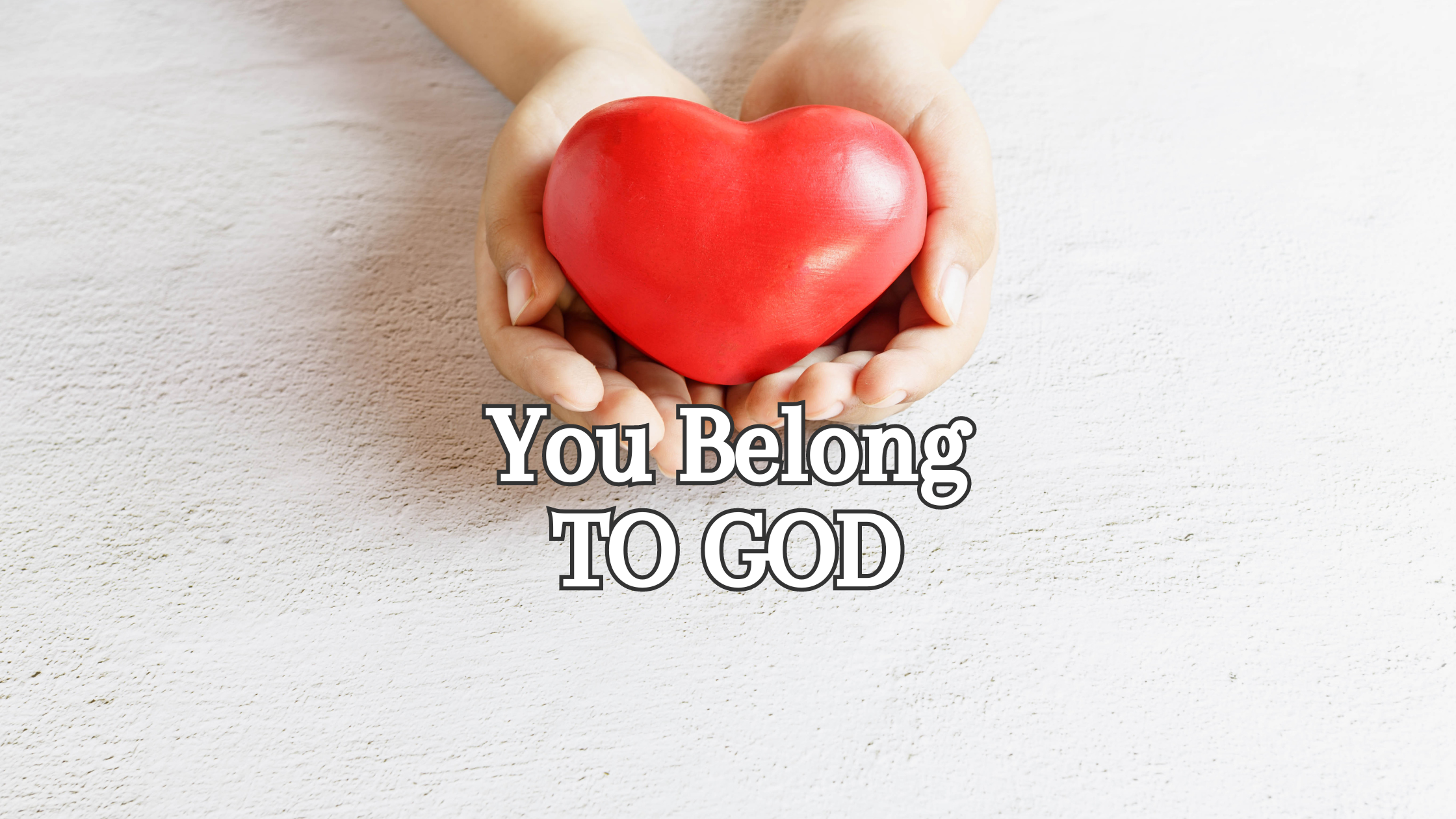
Burnt Offering: Is Your Life Dedicated to God? | Leviticus Series 2
in Worship
The burnt offering of the Old Testament isn’t as far removed from us today as we might think. It’s a sacrifice that cleanses you of sin, but its primary purpose is to dedicate your purified life to God. Some might say, “Sure, I live a life dedicated to God. I’m faithful to church and give my tithe regularly. I pray, volunteer, and even read the Bible some days. I’m dedicated.” But Leviticus gives us deeper insights into what a life dedicated to God requires.
It’s not so much about what we do or checklist requirements. Instead, it’s about heart attitude. It’s about sacrifice. And Leviticus teaches us that it’s only through cleansing and sacrifice that we can truly worship.
The burnt offering sent smoke into the air, smoke from a fire that had just consumed a prized member of the offeror’s herd. How did this affect God? A sweet aroma filled the air, a sweet fragrance that delighted Him. It smelled of cleansing, dedication, and a life committed to Him.
The burnt offering invites the question: what is the fragrance of your life? What, if anything, have you placed upon the altar as a gift to Him? Have you given Him your best? Have you given Him all? Let’s take a closer look at this Old Testament sacrifice so we can understand what it means for us today.

Why Does God Want Sacrifice?
The simple answer: He wants to be near us.
Leviticus is a book about God and how to approach Him. It’s about coming near to the Holy One. How are men in their sinfulness going to approach a pure, holy, and sinless God? How is God going to dwell among them? To come before a holy God they needed to be a holy people.
For I am the Lord that bringeth you up out of the land of Egypt, to be your God: ye shall therefore be holy, for I am holy. Leviticus 11:45
God already had a plan to cleanse from sin and come near His people. He provided a place, the tabernacle, and the priests to mediate between Himself and the people. By the end of Exodus, each part of His plan was in place except for the process. That’s why in the opening verses of Leviticus God calls Moses near and gives him detailed instructions about how to carry out the burnt offering in the newly constructed tabernacle.
This process, or these methods for bringing men near to God, is what we call the sacrificial system of the Old Testament. But even more importantly, all these offerings point to the ultimate sacrifice of Jesus Christ, the perfect Lamb of God who takes away the sins of the world, the sins of each individual who accepts and believes by faith.
God the Father sacrificed God the Son out of love for you and me. In return, He invites us to become living sacrifices dedicated to Him.
I beseech you therefore, brethren, by the mercies of God, that ye present your bodies a living sacrifice, holy, acceptable unto God, which is your reasonable service. Romans 12:1
But we get the better end of the deal by far. He gets us, our lives–but we get Him. The best thing God can give us is Himself.
The burnt offering is about God having more of us and us having more of God.

Sin Is Costly
The sacrificial system was a means of cleansing so that unholy men could have a way to approach a holy God Who cannot and will not tolerate sin. Sin violates the character of God, and He is entirely separate from it.
The overarching message of the entire sacrificial system is that sin is costly. The Bible teaches that sin has a price tag. It’s always going to cost us something, if not immediately, then eventually. And the cost is high, usually higher than we ever intended to pay.
But do we view sin this way? We live in a society that does all it can to mitigate the consequences of sin, to appease guilt, and to keep us from ever realizing that we need forgiveness and cleansing. We need God. We need the atoning sacrifice of Jesus Christ.
How do the Levitical sacrifices show the high price of sin? Imagine taking the best of your livestock, putting your hands on it to symbolically transfer your guilt, heaving it up on the altar, killing it, and letting the blood flow down. Is it not a gruesome and personal object lesson in the costliness of sin?
And it’s a lesson for us today. Do we see the costliness of our sin? Do we look to the cross and remember the price Jesus paid for our personal sins? Are we interested in living a life dedicated to God?

Sacrifice Is An Act of Worship
In basic terms, worship is a feeling or expression of reverence and adoration for God. It is about falling before God, desiring to please Him, and knowing Him. It’s not about quieting your conscience. Instead, you’re seeking to know God and be transformed into the image of Christ. As Leviticus makes clear, true worship requires personal sacrifice, a transaction between you and God. Ultimately, He is interested in us sacrificing our personal will to His will.
All Levitical sacrifices were tangible sacrifices to Jehovah that cost the offeror something valuable and required self-denial. You might wonder if livestock was really that “costly” to the offeror. Consider that in Old Testament times, livestock was rarely killed for food, because the animals were too expensive and were used for other purposes. This means that taking your livestock, killing it, and giving it to God wasn’t merely significant–it was shocking.
It was costly. It was worship. The blood of the sacrificial animal symbolized a life given for life because sinners deserve death. This temporary covering for sin made it possible for God and man to come near to each other, to commune with one another.
How are you worshiping? Is there an exchange between you and God, or are you going through empty motions?

What Is the Burnt Offering?
Of the five main offerings in Leviticus, the burnt offering was the first one God outlined to the people through Moses. “Burnt,” in this context refers to the idea of “holocaust,” meaning something completely consumed by fire.
This means the burnt offering is something that goes up in smoke with nothing left for you. You get nothing for yourself. God gets all of the sacrifice except for the hide. And it’s done willingly as a voluntary sacrifice.
Like several other offerings, you bring the most perfect animal from your herd and place your hands on its head. This shows your connection with the animal as its owner and as your substitute. The ultimate price tag for sin, according to Romans 6:23, is death, physical and spiritual. The animal takes your place and pays the price for your sin. Of course, this is a picture of what Christ has done for those who believe and follow Him.
This placing of your hands on the animal is also a way of acknowledging your guilt. Whether king or commoner, this was part of offering a burnt sacrifice. Then you, the offeror, not the priest, kill the animal before the Lord.
Sin Contaminates
The priests then take the blood and sprinkle it all around the Tabernacle as a cleansing ritual. This might seem strange, but the idea is that sin is a contaminant that spreads and permeates everything. Even the tabernacle must be cleansed from sin so that God’s presence can dwell and meet with His people. Our sin doesn’t just affect us. It affects everyone and everything around us, and it affects God.
After cleansing the tabernacle, the priest burns all of the offerings (except for the hide) on the altar as a burnt sacrifice made by fire. And this is what Leviticus declares as a sweet “savor” (fragrance) unto the lord. Even the ashes of this sacred offering to God are considered special and holy, which is why the priests had to carry them outside of the camp.
This cleansing by faith in these blood sacrifices was necessary to purify your life before dedicating it to God. Remember, it was a voluntary offering. The hands on the animal’s head, and the blood sprinkled, are symbolic of cleansing from sin. But the total consumption of the sacrifice by fire, the smoke rising to signify the sacrifice, was symbolic of a life dedicated to God.

Dedication Says, “God My Life Is Yours”
If you’re a follower of Jesus Christ and attend church regularly, you probably sing songs of surrender during your worship services. You may have even thought or said that your life is God’s. But what does that really mean?
Going through the motions of religious life, being a checklist Christian, and striving for morality in life, don’t necessarily mean our lives belong to God. What we see with the burnt offering is a total dedication and commitment of the gift (the offering) to the Lord. It wasn’t only about giving a valuable member of your herd. It was symbolic of giving your life.
You give the animal’s life in. substitution for yours, for the sin debt you owe. And in return, you're symbolically offering your life (that has been spared) to God. When a burnt offering was given from a sincere heart, it meant that the offeror’s life totally and completely belonged to God in loyal love because God delivered him from sin and death.
It’s like saying,
“I’ve sinned, and You, God, spared my life. In gratitude, I recognize my life belongs to You. I won’t climb up on the altar myself but will give this animal to say that my life is yours to command, Lord. My hopes, my dreams, my plans–all go up in smoke to You. I want my life to be on fire for You. I want my life to be consumed for You. I want my life to be a sweet-smelling savor to You.”
Wow.
This is the burnt offering. This is recognizing the magnitude of God and His love. This is acknowledging His bigness and our smallness. This is worship. Sacrifice. Holiness. Dedication. Surrender.

What Does the Burnt Offering Mean for Us?
We see profound symbolism through the burnt offering of Leviticus. It is a picture of loyal love that is in complete dedication and consecration to the Father’s will and not our own. Our only response must be one of self-examination.
Are we willing to bring our lives as a burnt offering to the Lord? Do we have a willing heart that wants to give ourselves as a living sacrifice to God as an expression of gratitude and love? (Romans 12:1) Isn’t that what Jesus did for us as an example?
And walk in love, as Christ also hath loved us, and hath given himself for us an offering and a sacrifice to God for a sweetsmelling savour. Ephesians 5:2
Will we sacrifice our will to the Father’s as Christ did for us?
Are you willing to be a burnt sacrifice totally consumed by the will of God because you love Him and love others like He loves others? Are you willing to sacrifice every dream, every hope, every plan, every desire, every agenda apart from God as an up-in-smoke offering to Him–because He is worth it?
Jesus said that He came to give His life a ransom for many, to minister and not be ministered to. That is the burnt offering. That is worship. THAT is what God wants from each of our lives.
Is that the fragrance of your life? When was the last time you truly worshiped God in a transaction between you and Him where your life was going up in smoke for Him? Is the fragrance of your life the fragrance of a life dedicated to Christ?
May God help us to learn the lesson of the burnt offering.
Adapted from Pastor James Wooten’s Sermon, Burnt Offering: What Is the Fragrance of Your Life? | The Perfect Sacrifice | Leviticus Series 2 (6.11.23)



